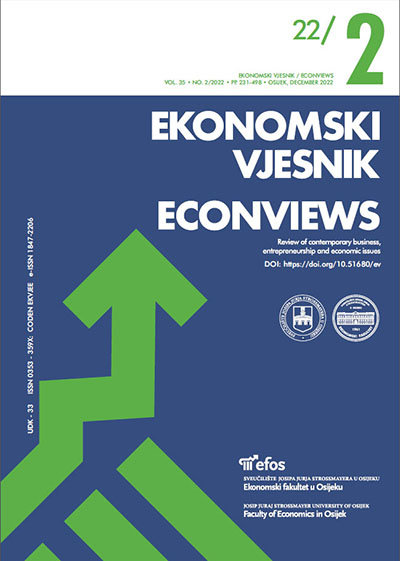Increase supply chain resilience by applying early warning signals within big-data analysis
Increase supply chain resilience by applying early warning signals within big-data analysis
Author(s): Judit Nagy, Pavel FoltinSubject(s): Economy, Business Economy / Management, Transport / Logistics
Published by: Sveučilište Josipa Jurja Strossmayera u Osijeku, Ekonomski fakultet u Osijeku
Keywords: supply chain resilience; big-data analytics; high-impact low probability events; early warning signals;
Summary/Abstract: Purpose: The current environment of globally interconnected supply chains, the dynamics of changes and potential threats significantly reduce the time for a possible response. At the same time, there is a growing demand for information necessary to mitigate the consequences. To minimise the damage and increase the resilience of supply chains, it is necessary to identify sources of threats promptly, the extent of possible damage and the possibility of preventing or minimising their impact. The aim of the paper is to structure supply chain threats and search for appropriate datasets for prevention. Methodology: The paper analyses the state-of-the-art through a comprehensive literature review and demonstrates secondary data about how free-access business data can be used as Early Warning Signals to forecast supply chain disruptive events, with a particular focus on international maritime transportation. Results: It was confirmed that companies can access many open datasets, and collecting and aggregating these data can improve their preparedness for future disruptive events. As the most important issue, the authors defined the selection of proper datasets and interpreting results with foresight. Conclusions: Identifying and analysing the relevant Early Warning Signals by companies to prevent supply chain disruptions are essential for keeping their supply chains sustainable and their resilience on a sufficient level. It was proved that general business indicators (PMI delivery time, container capacity, inflation rate, etc.) can help to signal the increasing possibility of maritime traffic problems in ports and container unavailability as usual supply chain disruption types in recent years. Therefore, the companies in the supply chains need to find, collect and analyse the appropriate data, which are, in some cases, free and available. However, it is a substantial task for data analysts to identify the most relevant data and work out the analytical methodology which can be applied as Early Warning Systems (EWS).
- Issue Year: 35/2022
- Issue No: 2
- Page Range: 467-481
- Page Count: 15
- Language: English

